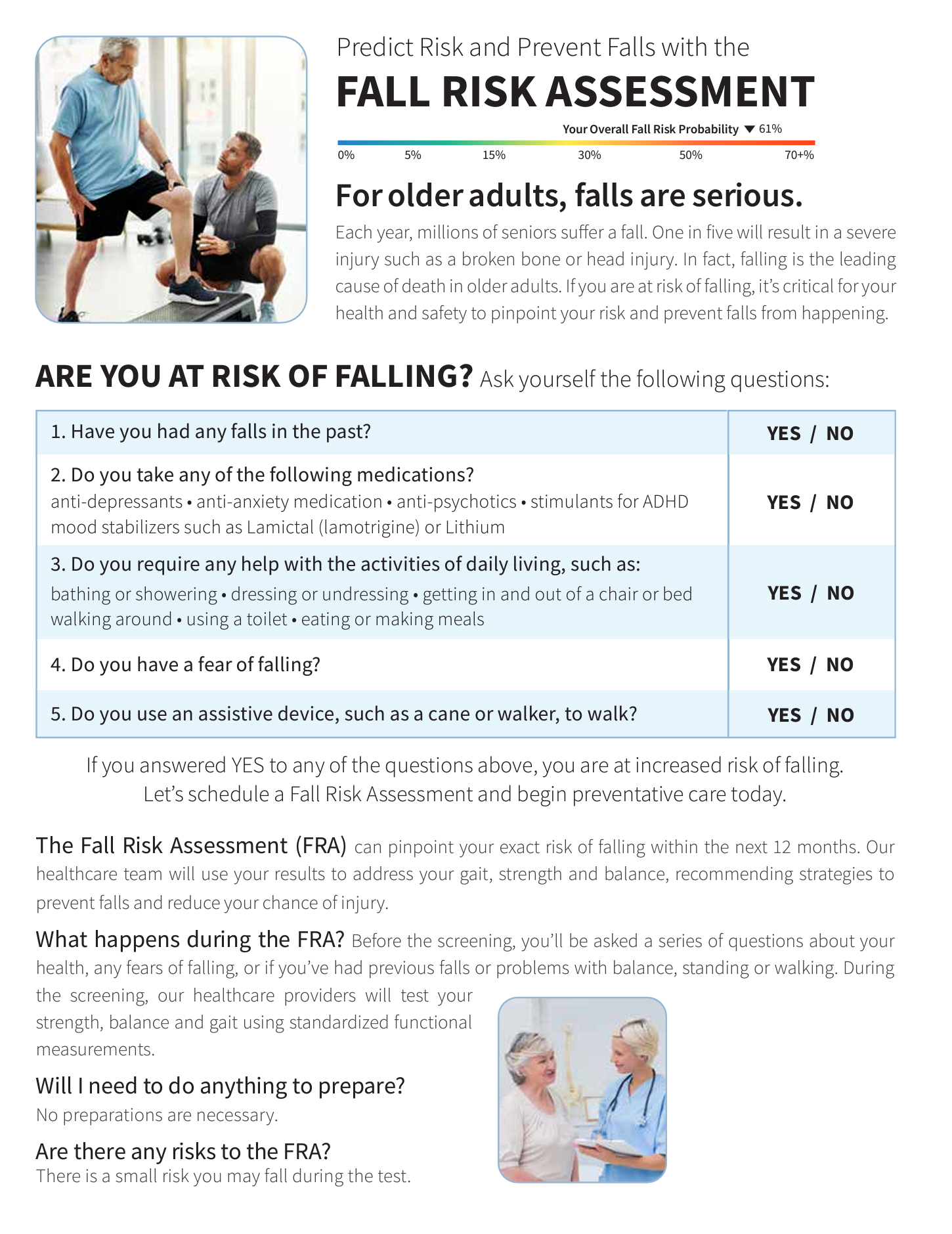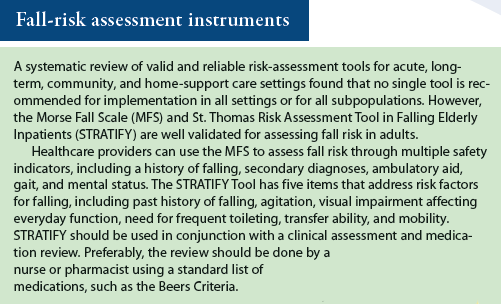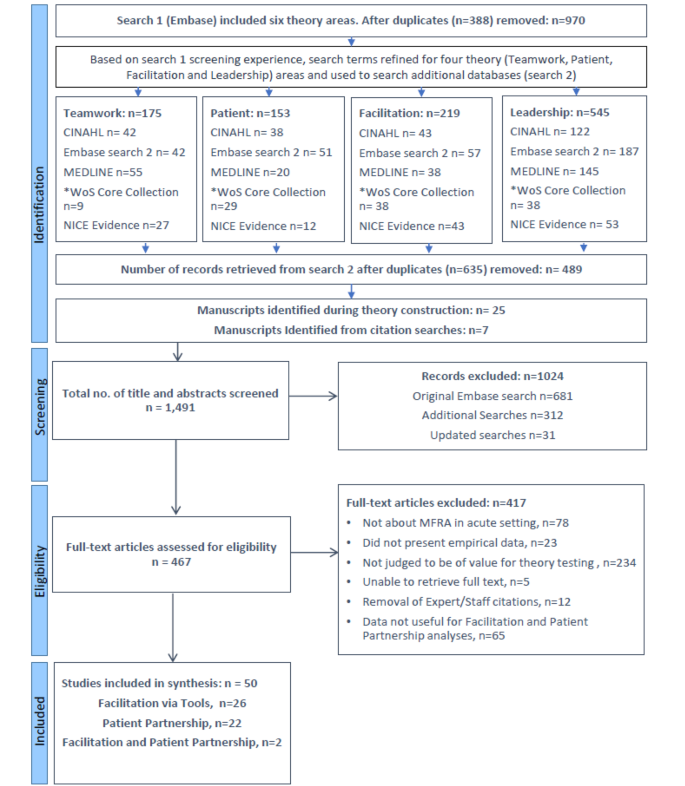Some Known Factual Statements About Dementia Fall Risk
Some Known Factual Statements About Dementia Fall Risk
Blog Article
How Dementia Fall Risk can Save You Time, Stress, and Money.
Table of ContentsAll about Dementia Fall RiskDementia Fall Risk Things To Know Before You Get ThisHow Dementia Fall Risk can Save You Time, Stress, and Money.Some Known Factual Statements About Dementia Fall Risk Top Guidelines Of Dementia Fall Risk
The FRAT has 3 sections: fall risk standing, threat variable list, and action plan. A Fall Threat Standing consists of data about history of current drops, medicines, psychological and cognitive status of the person - Dementia Fall Risk.If the client scores on a risk aspect, the corresponding number of factors are counted to the individual's autumn danger score in the box to the far. If a patient's loss danger score totals five or greater, the person is at high threat for falls. If the person ratings only 4 points or reduced, they are still at some risk of dropping, and the nurse should utilize their best professional evaluation to take care of all autumn risk variables as part of an all natural care strategy.
These basic methods, in basic, aid develop a safe environment that decreases unexpected drops and marks core preventative measures for all patients. Signs are important for clients at danger for falls.
The smart Trick of Dementia Fall Risk That Nobody is Discussing
Wristbands ought to include the individual's last and first name, day of birth, and NHS number in the UK. Only red shade must be used to signify special person condition.
Things that are as well much may call for the individual to connect or ambulate needlessly and can possibly be a risk or contribute to falls. Aids avoid the person from going out of bed with no help. Registered nurses reply to fallers' telephone call lights quicker than they do to lights started by non-fallers.
Visual disability can significantly cause falls. Hip pads, when worn correctly, might lower a hip fracture when loss happens. Maintaining the beds closer to the flooring minimizes the risk of falls and severe injury. Placing the bed mattress on the flooring significantly decreases autumn threat in some healthcare settings. Reduced beds are made to lessen the distance an individual drops after moving out of bed.
All about Dementia Fall Risk
Patients that are tall and with weak leg muscles who attempt to remain on the bed from a standing setting are likely to fall onto the bed because it's also reduced for them to reduce themselves safely. Also, if a high individual attempts to rise from a reduced bed without help, the individual is likely to drop back down onto the bed or miss out on the bed and fall onto the floor.
They're designed to advertise timely rescue, not to stop falls from bed. Apart from bed alarms, boosted supervision for risky clients additionally may aid avoid drops.

Clients with an evasion stride boost autumn possibilities significantly. To decrease autumn threat, shoes must be with a little to no heel, slim soles with slip-resistant tread, and more information support the ankles.
The Dementia Fall Risk Diaries
In a research study, homes with sufficient illumination report less drops (Ramulu et al., 2021). Enhancement in illumination at home might lower loss prices in older adults.

Caretakers are efficient for guaranteeing a protected, safeguarded, and safe environment. Research studies demonstrated really low-certainty proof that sitters lower fall threat in severe treatment hospitals and just moderate-certainty that choices like video tracking can minimize caretaker usage without increasing loss threat, suggesting that sitters are not as useful as at click now first believed (Greely et al., 2020).
The Ultimate Guide To Dementia Fall Risk

Enhanced physical fitness reduces the danger for drops and restricts injury that is sustained when fall takes place. Land and water-based workout programs might be similarly useful on equilibrium and stride and thereby decrease the danger for drops. Water workout might add a positive benefit on equilibrium and gait for women 65 years and older.
Chair Increase Exercise is a straightforward sit-to-stand workout that helps strengthen the muscle mass in the thighs and butts and enhances flexibility and independence. The goal is to do Chair Rise exercises without using hands as the client becomes stronger. See resources area for a thorough guideline on just how to perform Chair Surge workout.
Report this page